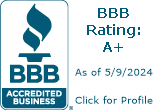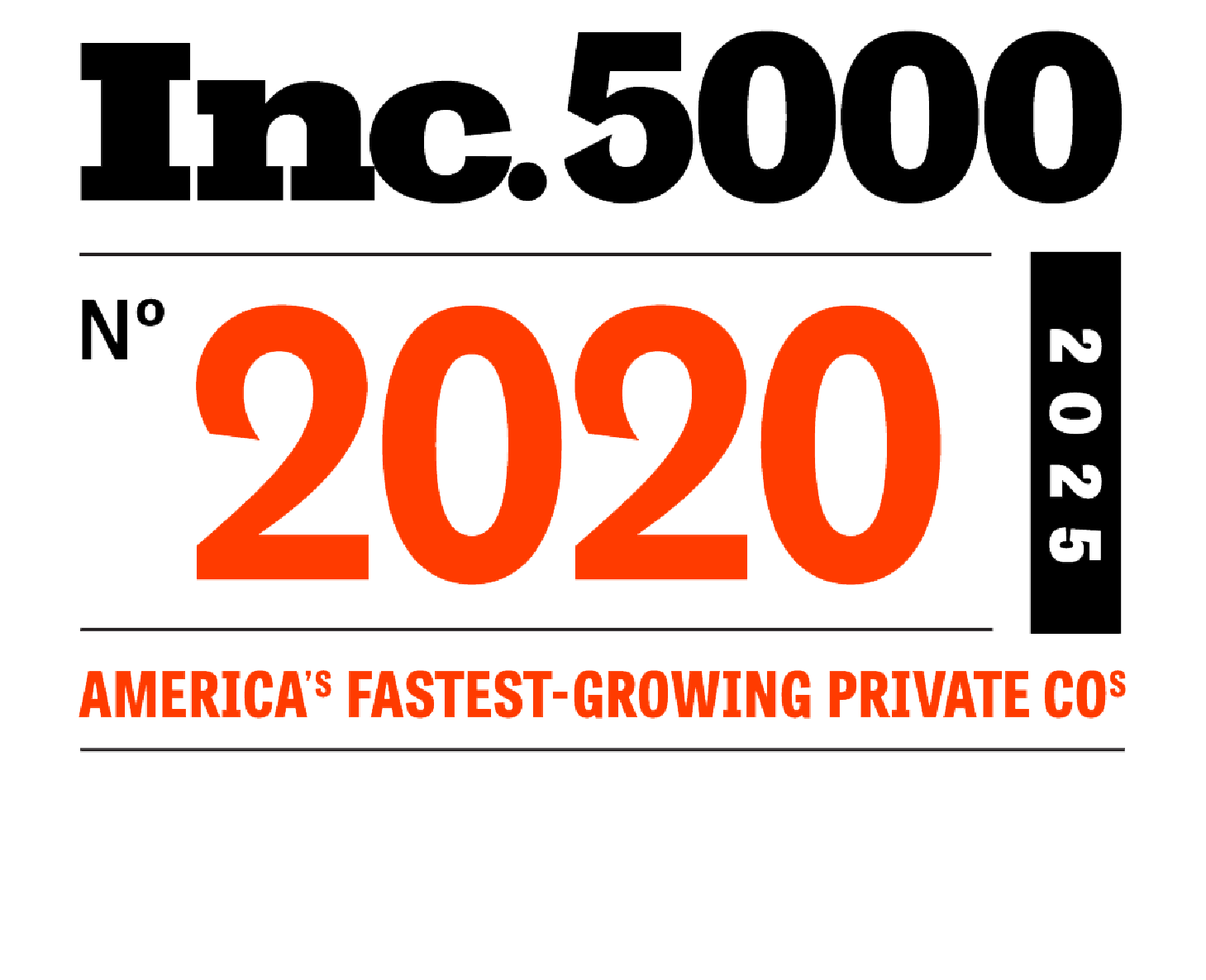Economic Nexus State By State Guide
Written by: Agile Consulting

What Triggers Economic Nexus?
Chances are you’ve heard of economic nexus yet you might not know what the term really means. If you are a business owner, entrepreneur, manager, or involved in accounting or tax, and struggling with economic nexus, you have surfed your way over to the right corner of the web. Economic nexus is established when sales exceed the benchmark or threshold outlined by a state. Then, the seller has the obligation to begin collection of sales tax in that state. The quantification of the sales benchmark is tabulated in either transactions, revenues or sometimes both. In certain states, exempt or nontaxable sales are included in the count that dictates whether economic nexus is triggered.
Let's take a look at each state’s
economic nexus details including their respective thresholds. Without further ado, here’s your guide to economic nexus by state.
State By State Guide to Economic Nexus
Alabama
Alabama's economic nexus began October 1, 2018. The state's threshold is $250,000 in retail sales within a single year. Businesses are expected to register by the first of January the year subsequent to the threshold being exceeded.
Transactions included in the determination of economic nexus are the aggregate retail sales of tangible personal property delivered within the state as well as sales made via a non-collecting marketplace facilitator. Sales completed through a registered marketplace facilitator should be excluded from this computation.
Alaska
Alaska does not have a state sales tax. However, Nome, Alaska made history as the first-ever city to pass an economic nexus law. The law went into effect on September 1, 2019. The city's economic nexus threshold is $100,000 in gross sales or 100+ transactions within the city's limits in a calendar year. The city requires registration on the first day of the month that begins 30 days after the date on which the threshold was met.
Arizona
The economic nexus in Arizona began on October 1, 2019. The state's economic nexus is triggered at $100,000 in gross annual sales. The deadline for registration is the first day of the month 30 days after the date on which the threshold was exceeded.
In terms of determining whether a business has met Arizona’s economic nexus threshold, included transactions are the gross proceeds of the sales of tangible personal property or services, including any exempt or nontaxable revenue. The state’s excluded transactions are sales that occurred within marketplace facilitators registered for sales tax collection within the state.
Arkansas
Arkansas launched its economic nexus on the first of July in 2019. The state's threshold for triggering economic nexus is $100,000 in taxable sales or 200 yearly transactions. Businesses are required to register on the day that the threshold is passed.
Arkansas’ determination includes transactions such as taxable services, digital codes and products and aggregate taxable sales of tangible personal property. The state excludes transactions such as sales completed with registered marketplace facilitators along with exempt sales of tangible personal property and services.
California
California's economic nexus started on the first of April in 2019. The threshold is half a million dollars of gross sales in a year. The expected registration date is that on which the threshold is first passed.
In terms of measuring the threshold, the state’s included transactions include the aggregate tangible personal property sales delivered into the state without regard for whether those are taxable or nontaxable sales, such as those for resale. California’s excluded transactions encompass both taxable and exempt services.

Colorado
Colorado's economic nexus started June 1, 2019. The state's economic nexus threshold is $100,000 in retail sales in a calendar year. Colorado does not have a transaction count clause in their economic nexus policy. The required registration date is the first day of the month 90 days after passing the threshold.
Colorado’s evaluation of economic nexus includes the gross receipts from the retail sale of tangible personal property regardless of whether those are taxable or nontaxable sales. The state has excluded transactions of services, both taxable and exempt, as well as sales for resale otherwise known as wholesale sales, SaaS and digital products.
Connecticut
Connecticut's economic nexus start date was December 1, 2018. The state's threshold for economic nexus is $100,000 gross sales along with 200 transactions in a year. It is one of the few states that require businesses to meet both criteria before sales tax registration is expected. The registration date is the first day of the month of October in the year in which the benchmark was met.
The state’s included transactions are gross receipts resulting from the sale of tangible personal property without any deduction allowed for exempt sales, all services regardless of whether they are taxable or exempt, and sales made through online marketplaces. Sales for resale are the state’s only excludable transactions.
Delaware
Delaware does not have sales tax, so there is no applicable economic nexus within this state.
Florida
Florida was one of the last states to enact economic nexus. Florida's economic nexus started July 1, 2021. The state's threshold is $100,000 of taxable remote sales per year. Businesses should register on the day that the threshold is exceeded.
The state only includes taxable sales of tangible personal property that is physically moved into the state in its evaluation of economic nexus. Florida excludes nontaxable sales of tangible personal property as well as most services.
Georgia
Georgia's economic nexus program kicked off on January 1, 2019. The threshold is $100,000 of retail sales or 200 annual retail transactions. The time to register is the date that the threshold is surpassed.
For determination of economic nexus, Georgia’s included transactions are limited to gross revenue derived from retail sales of items. Georgia’s excluded transactions are non-retail sales of tangible personal property and many services.
Hawaii

Hawaii's economic nexus start date was July 1, 2018. The state’s threshold is $100,000 of gross sales or 200 annual transactions. The required registration date is the first day of the next month after the threshold has been met.
For determination of economic nexus, the state includes gross income from both tangible and intangible property sent into the state, services rendered within the state without regard for whether those services are classified as taxable or non-taxable, as well as non-taxable or exempt sales.
Idaho
Idaho's economic nexus start date is June 1, 2019. The state's threshold is $100,000 of annual gross sales. The time to register for a sales tax license with the state of Idaho is the day on which the threshold is surpassed.
For determination of economic nexus, Idaho includes all transactions or the cumulative gross receipts resulting from any and all product or service sales without regard to whether those sales are subject to tax or are exempt.
Illinois
Illinois began its economic nexus program on October 1, 2018. The state has established a threshold of either $100,000 or 200 transactions in retail sales of tangible personal property within a calendar year. Once the threshold is met, the seller is required to register for an Illinois sales tax license the first day of the next quarter.
When determining whether a company has met the economic nexus threshold, Illinois includes gross receipts from sales made into the state regardless of whether those sales are considered to be taxable or exempt sales. Sales processed through a market facilitator, sales for resale, services and occasional sales are categories of transactions that can be excluded from the calculations when evaluating economic nexus within Illinois.
Indiana
Indiana’s start date for its economic nexus policy was October 1, 2018. The state’s threshold is $100,000 of gross sales or 200 annual transactions. Registration is expected the day that the threshold is surpassed.
For determination of economic nexus, Indiana includes transactions such as gross sales revenue from sales of tangible personal property, products or services delivered electronically into the state, taxable and exempt services and exempt sales such as sales for resale.
Iowa
Iowa's economic nexus start date was January 1, 2019. The state has a threshold of $100,000 of annual gross sales. Iowa does not have a transaction count as part of its threshold. The registration date is the first day of the month that is 30 days after surpassing the threshold. For example, if the economic nexus threshold was surpassed on April 22nd, then the company must be registered by June 1st.
When evaluating whether one has economic nexus in Iowa, the gross sales revenue derived from tangible personal property including sales for resale or otherwise non-taxable sales, electronically delivered products and services must be included in the revenue calculations.
Kansas
Kansas kicked off its economic nexus policy effective October 1, 2019. The threshold is $100,000 of gross sales per calendar year. Kansas does not have a transaction count as part of its threshold. Taxpayers are required to register the day on which the threshold is surpassed.
For determination of economic nexus, Kansas has provided guidance that says that the gross receipts of the business should be evaluated. That includes all sales to customers located within Kansas - tangible personal property, services, and digital products such as software as a service (SaaS).
Kentucky
Kentucky rolled out its economic nexus policy effective October 1, 2018. Its threshold is $100,000 of gross sales or 200 separate transactions within a calendar year. Registration for sales tax collection is required by the first day of the month that is 60 days post-threshold. For example, if the threshold was met on July 3rd, the registration must be in place by October 1st.
For determination of economic nexus, Kentucky includes transactions such as sales of tangible personal property and sales of digital products electronically transferred into the state. Services are the only category of sales that can be excluded from the calculations.

Louisiana
Louisiana was one of the last states to enforce an economic nexus policy. Taxpayers who has exceeded the threshold were required to be registered no later than July 1, 2020. Louisiana’s threshold is either $100,000 of gross sales or 200 transactions over the course of a calendar year. Registration must be completed within 30 days of surpassing the threshold, however, Louisiana offers a grace period of an additional 30 days before sales tax collection must begin.
For determination of economic nexus, Louisiana evaluates gross revenues of products delivered into the state, including electronically delivered products and software. Services are also included in the calculation.
Maine
Maine's start date for its economic nexus policy was July 1, 2018. The state has a threshold of $100,000 in gross sales or a transaction count of 200+ during a calendar year. The day the threshold is surpassed is the day Maine expects a business to register.
For determination of economic nexus, Maine includes transactions of taxable services, and all sales of tangible personal property in its evaluation of a business’s revenue. Services that are not subject to tax in the state of Maine are excluded from the calculations when determining economic nexus.
Maryland
Maryland initiated its economic nexus program on October 1, 2018. Maryland’s threshold is either $100,000 in gross sales or 200 transactions within a calendar year. Maryland expects businesses to register by the 1st day of the month subsequent to surpassing either of these thresholds.
In its evaluation of a business for economic nexus, Maryland includes gross sales of tangible personal property, digital goods or software delivered into the state, as well as services that are subject to tax under Maryland’s sales and use tax laws. Services which are typically not taxed in Maryland can be excluded from the calculations.
Massachusetts
Massachusetts kicked off its current economic nexus policy effective October 1, 2019, however, it originally implemented its first economic nexus policy effective October 1, 2017. The 2019 change reduced the threshold to $100k of gross sales in a calendar year. There is no transaction count threshold as part of the current economic nexus policy in the state of Massachusetts. Massachusetts is unique in that a business is expected to complete its registration on a different timeline depending on when it exceeds the threshold. If the threshold is met before October 31st in a calendar year, the registration must be effective as of January 1st of the subsequent year. If the threshold is met between November 1st and December 31st in any calendar year, then the registration must be effective by the first day of the month that is two months after exceeding the threshold. For example, if the economic nexus threshold is met on December 5th, then the business must have its registration in place by February 1st.
For determination of economic nexus, the state of Massachusetts looks at gross sales. There are no sales that can be excluded. That means that all sales of tangible and intangible personal property as well as all services should be included in the calculations.
Michigan
Michigan has a start date of October 1, 2018 for its economic nexus policy. Its threshold is either $100,000 in gross sales or 200 transactions over the timespan of a calendar year. If the threshold is met any time during a calendar year, a registration with an effective date of January 1st of the subsequent year is expected.
For determination of economic nexus, Michigan’s includes all sales transactions, including sales of tangible personal property as well as all services.
Minnesota
Minnesota's beginning date for economic nexus was October 1, 2018 or sixty days following the remote seller's surpassing the benchmark. The state has a threshold of either $100,000 of total sales or 200 transactions within a rolling 12-month timespan. A taxpayer must register within 60 days of exceeding either threshold.
Minnesota does not require businesses to include all sales transactions when making the evaluation of whether it has exceeded the defined thresholds. A business should include retail sales, sales not subject to tax including non-profit or otherwise non-taxable entities as well as sales of taxable services. A business can exclude sales for resale, and exempt services.
Mississippi
Mississippi's initial date that its economic nexus policy went into effect was September 1, 2018. The state has a threshold of $250K in gross sales made into the state within a rolling 12-month time period. Registration is expected the day the threshold is reached.
For the determination of economic nexus, the state considers total sales made into Mississippi without allowing for any exclusions.
Missouri

Missouri was the last U.S. state to enact its economic nexus policy. It did so effective January 1, 2023. The threshold for economic nexus in Missouri is $100,000 in gross sales over the course of the preceding 12-month timespan. The state does not have a transaction count as part of its economic nexus threshold. Registration is expected before the first day of the month 90 days after the end of the quarter in which the threshold was exceeded. For example, if the threshold is met on May 23rd, then the registration should be completed before September 1st.
For determination of economic nexus, the state includes gross sales of tangible personal property, but does allow businesses to exclude sales that are not subject to tax, such as sales for resale or sales to a non-taxable entity and sales of all services.
Montana
The state of Montana does not have sales tax and therefore does not have an economic nexus policy.
Nebraska
Nebraska has a January 1st, 2019 start date for its economic nexus policy and a threshold of $100k in gross sales or greater than 200 transactions over the course of the current or preceding calendar year. Registration is required by the first day of the second calendar month after crossing the threshold. For example, if either threshold is met on February 23rd, then April 1st is the deadline for registration.
For determination of economic nexus, Nebraska’s includes gross retail sales to in-state customers, including sales not typically subject to tax. Services are also included. However, a business can exclude sales for resale, and transactions that involve subleasing or subletting property.
Nevada
Nevada began enforcing its economic nexus policy on November 1, 2018. Its threshold is either $100,000 in retail sales or 200 retail transactions completed over a calendar year. Once a remote seller meets either threshold, it is expected to complete a registration by the first day of the month 30 days after reaching the threshold. That means that if nexus is triggered on June 12th, then the registration must be submitted to the Nevada Department of Taxation by August 1st.
For determination of economic nexus, Nevada includes gross retail sales of tangible personal property with no deduction allowed for tangible personal property of a nature that is typically not subject to sales tax in the state. Nevada does allow for the exclusion of sales for resale and any services from the calculations for determining nexus.
New Hampshire
New Hampshire does not have sales tax.
New Jersey
New Jersey initiated its economic nexus program on November 1, 2018. The state's thresholds are either $100,000 in gross sales or 200 completed transactions over the course of a calendar year. Registration is expected on the same day the threshold is surpassed.
For determination of economic nexus, the New Jersey State includes the gross revenue obtained from the retail sales of tangible personal property, certain digital products, and taxable services listed in N.J.S.A. 54:32B-3(b). New Jersey excludes any transactions for exempt services, which are all other services than those listed in the aforementioned section of the New Jersey Statutes.
New Mexico
New Mexico's start date for its economic nexus program was July 1, 2019. The state's threshold is $100,000 of annual taxable sales. New Mexico does not have a transaction count as part of its threshold requirements. The date by which registration is expected of taxpayers who reach the $100,000 threshold is the first day of the subsequent year.
For determination of economic nexus, New Mexico includes the following categories of revenue in its evaluation: sales for licensing or use of real property, sales of digital products and SaaS, and the total TAXABLE gross receipts from the sale, lease or licensing of tangible personal property. Businesses can exclude revenue earned from the sale of exempt goods and services.
New York
The state of New York’s economic nexus policy began on June 21, 2018, which was the date the U.S. Supreme Court issued its ruling in the landmark case SD v. Wayfair. New York’s threshold is one of the few states that requires businesses to reach both a revenue AND transaction count threshold. The combination threshold is $500,000 in gross sales AND 100+ transactions over the course of the preceding 4 quarters. New York evaluates this on a rolling calendar basis, not a calendar year basis. New York expects businesses to register within 30 days of meeting the thresholds.

For determination of economic nexus, New York includes gross receipts earned from the sales of tangible personal property. New York considers SaaS to be tangible personal property, so those transactions would be included as well. Services are excluded from the calculations in New York.
North Carolina
North Carolina began its economic nexus policy effective November 1, 2018. Its threshold is either $100,000 in gross sales or 200+ transactions within a calendar year. A business is expected to register the day the threshold is surpassed.
For determination of economic nexus, the state of North Carolina includes all gross sales made into the state including sales of tangible personal property, digital products and services without deductions for any such items that are non-taxable per North Carolina’s sales and use tax exemptions. There are no sales that can be excluded from North Carolina’s economic nexus calculations.
North Dakota
North Dakota's beginning date for economic nexus was October 1, 2018. The state's threshold is $100,000 of taxable sales in a year. The expected registration date depends upon when a business meets this threshold. If a business meets the threshold between January 1st and October 1st of a calendar year, registration is expected to be completed within sixty days. If a business meets the threshold between October 2nd and December 31st, then the business is expected to be registered effective January 1st of the subsequent year.
When determining if a business has met North Dakota’s economic nexus threshold of $100,000, only taxable sales of tangible personal property and services should be included in the calculations. Any sales of products or services that are not subject to tax in North Dakota can be excluded. Also, sales made through a marketplace facilitator can be excluded since that marketplace facilitator is responsible for assisting with the filings.
Ohio
On November 1, 2018, the state of Ohio began enforcing its economic nexus policy. Its threshold is either $100,000 in gross sales or 200+ transactions completed within the state per calendar year. Ohio expects a business to register the day it meets either of these thresholds.
When assessing one’s transactions to determine if either of Ohio’s economic nexus thresholds have been met, total gross retail sales of tangible personal property should be included along with any revenue generated from the enumerated taxable services as defined by the Ohio tax code. Bear in mind that Ohio considers many digital products to be tangible personal property. Wholesale or resale sales of tangible personal property can be excluded along with revenue from non-taxable services.
Oklahoma
That state of Oklahoma initiated its economic nexus policy on July 1, 2018 start date. The state’s threshold is $100,000 of gross sales in the current or previous calendar year. Oklahoma expects businesses that exceed this threshold to register for a sales tax license by the 1st day of the next month. That means that if you meet the threshold on July 3rd, Oklahoma would expect you to submit a registration no later than August 1st.
Only the revenue from taxable tangible personal property and taxable services are included in the calculations to determine economic nexus within Oklahoma. Any exempt transactions, either of tangible personal property or services, can be excluded from the calculations in Oklahoma.
Oregon
Oregon has no sales tax.
Pennsylvania

July 1, 2019 was the first date on which the state of Pennsylvania began enforcing economic nexus. Its threshold is $100,000 in gross sales during a calendar year. If a business meets this $100,000 threshold at any point during a calendar year, the state of Pennsylvania expects the business to be registered by the first of April in the next calendar year.
Pennsylvania makes it simple to evaluate a business’ sales in terms of establishing economic nexus - any revenue from all types of transactions is included with no exclusions or exceptions.
Puerto Rico
The economic nexus start date in Puerto Rico was July 1, 2021. The U.S. territory has a threshold of $100,000 or 200 transactions over the course of the seller’s accounting year. Registration is expected the day the threshold is met.
Total gross sales revenue should be evaluated when determining the status of economic nexus within Puerto Rico. There are no transactions that can be excluded.
Rhode Island
Rhode Island first attempted to implement economic nexus on August 17, 2017 prior to the U.S. Supreme Court ruling in South Dakota v. Wayfair, however, its revised and current policy went into effect on July 1, 2019. Rhode Island’s threshold is $100,000 in taxable sales or 200+ taxable transactions within a calendar year. Once either of those thresholds are met, Rhode Island expects a business to be registered by the first day of January in the subsequent year.
Rhode Island has chosen to include taxable transactions involving the sale of tangible personal property, prewritten computer software and other digital products regardless of the method of delivery, and services that are taxable within the state. Non-taxable transactions and exempt services can be excluded.
South Carolina
South Carolina's kickoff date for its economic nexus policy was November 1, 2018. South Carolina's threshold is $100,000 of yearly gross sales. There is no component of the threshold tied to transaction count. South Carolina’s expected registration date is the first day of the second calendar month after the threshold is surpassed. For example, if either threshold is met on May 23rd, then July 1st is the deadline for registration.
The Palmetto State includes gross revenue derived from sales of tangible personal property or services as well as electronically transferred digital products, as South Carolina has defined those to be tangible personal property. No transactions can be excluded from the revenue calculations.
South Dakota
The state that was the impetus for the U.S. Supreme Court’s concept of economic nexus, South Dakota, initiated its policy on November 1, 2018. Its threshold is $100k in gross annual sales. South Dakota expects businesses to complete their registration by the first day of the second calendar month after the threshold was met. For example, if the revenue threshold is met on June 19th, then August 1st is the deadline for registration.
To determine whether a business has economic nexus within South Dakota, the calculations are straightforward. All revenue earned from any sales of products, services and digital goods are included. There are no types of transactions that should be excluded from the calculations.
Tennessee
Tennessee began its economic nexus policy enforcement on October 1, 2019. Its threshold is $100,000 in retail sales over the preceding 12 months on a rolling calendar, not calendar year basis. Tennessee requests that all businesses that meet this threshold complete their registration by the first day of the third calendar month. In other words, if your business meets the threshold on June 5th, then September 1st is the deadline for registration.

Tennessee allows businesses to deduct any revenue earned through wholesale sales or through online marketplaces such as Amazon, Etsy or Walmart from its calculations to determine economic nexus. All retail sales to customers within Tennessee, regardless of whether those entities are taxable or non-taxable, need to be included along with all revenue earned from services rendered within the state.
Texas
The Lonestar State of Texas commenced its economic nexus policy enforcement on July 1, 2019. Its threshold is $500,000 in gross sales made within the preceding 4 quarters. A business is expected to register with the Texas Comptroller’s Office no later than the first day of the fourth month after the remote seller hits the threshold. That means that if your business meets the threshold on August 8th, December 1st is the deadline for having a Texas sales tax license.
All sales made into the state of Texas are included when evaluating revenue for establishing economic nexus. There are no allowable deductions.
Utah
Utah's start date for its economic nexus program was January 1, 2019. The state of Utah’s threshold is $100k of gross sales or 200 transactions in a calendar year. Utah expects businesses to register the day either threshold is met.
When evaluating a business’ revenue in terms of the state of Utah’s economic nexus thresholds, the transactions to include are gross revenues from sales of tangible personal property, services rendered and any digital products, even if those are distributed electronically. This includes both taxable and non-taxable sales of these types. There are no sales that should be excluded from these calculations.
Vermont
The state of Vermont’s first day of its economic nexus program was July 1, 2018. Its threshold is $100,000 in gross sales or 200 transactions over the previous 12 months. Note that this threshold is computed on a rolling calendar basis over the preceding 12 months, not necessarily on a calendar year basis. Vermont expects businesses to register by the first day of the month after reaching either threshold.
When assessing a business’ sales in regard to Vermont’s economic nexus thresholds, the following types of sales should be included: tangible personal property, services, digital products, even if those are transferred electronically. No sales should be excluded from these calculations.
Virginia

Virginia's economic nexus policy went into effect on July 1, 2019. Its thresholds are either $100,000 in retail sales or 200+ retail transactions within a calendar year. Virginia expects businesses to register for sales tax collection the day either threshold is met.
Virginia includes sales of tangible personal property, digital products delivered electronically, and services subject to tax when assessing whether a business has reached either threshold. The state allows businesses to exclude any wholesale sales, sales for resale and services not subject to tax in Virginia.
Washington
Washington began its economic nexus policy with an effective date of January 1, 2018. Its current threshold is solely tied to revenue, although prior iterations of its policy included transaction counts. Any business that reaches sales revenues of $100,000 from sales within the state of Washington has established economic nexus. A business is expected to register the first day of the month that begins 30 days after the threshold is surpassed. If you meet the threshold on September 5th, then your business must have its registration completed by November 1st.
Washington includes all sales revenue in its calculations to determine economic nexus. There are no categories of sales that may be excluded.
Washington D.C.
Washington D.C., also known as the District of Columbia, began its economic nexus program on January 1, 2019. Its threshold is either $100,000 in retail sales or 200 retail transactions within a calendar year. A business is expected to register the day it meets either threshold.
Washington D.C. includes retail sales and taxable services in its determination of economic nexus. Non-taxable services, wholesale sales and sales for resale may be excluded from a business’ calculations.
West Virginia
The start date for economic nexus in West Virginia was January 1, 2019. The state threshold is either 200+ retail transactions or $100,000 in retail sales within a calendar year. Registration is required on the date on which either the threshold is exceeded.
The state includes all transactions when evaluating a business’ sales in terms of economic nexus.
Wisconsin
Wisconsin's economic nexus policy start date was October 1, 2018. The state’s threshold is $100,000 in gross sales over the course of a calendar year. Wisconsin expects a registration to be completed the same day that the threshold is reached.
Wisconsin includes all transactions in its assessment of whether a business has economic nexus. There are no types or categories of sales that should be excluded.
Wyoming
Wyoming began enforcing its economic nexus program on February 1, 2019. Wyoming's threshold is either $100,000 of gross sales or 200 distinct transactions per calendar year. Businesses should register the same day that either threshold is surpassed.
The state of Wyoming includes all transactions a business makes within the boundaries of the state when evaluating its economic nexus threshold. No sales should be excluded in Wyoming.
Find More Information for Your State












